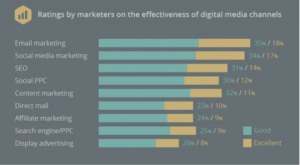Uncertainty is the name of the game for many small businesses. You might not know how your orders will flow next month, whether demand for your product or service will change, or whether you’ll be hit by some unanticipated expense. Your business might be highly seasonal or might depend on external factors beyond your control. These contingencies can make for volatile cash flows that demand attention lest they deplete your working capital and possibly drive you out of business.
Budgeting for irregular cash flows is therefore a task at the heart of keeping your business alive and growing. Your suppliers will have only limited patience if you are forced to delay payments. The inability to purchase the planned amount of raw goods or inventory directly affects revenues, simply because you’ll have less product to sell. If you need to lay off workers and managers, you can expect a steep drop in morale and holes in your operations.
With stakes like these, it’s good to know that there are several steps you can take to smooth over irregular cash flows:
Prepare three budgets:
You’ll want to budget for the most likely scenario, but also for better-than-expected and worst-case ones. Unless you have reason for optimism, pay the most attention to the worst-case scenario and make sure you budget anticipates a drastic cut in sales or rise in expenses. Should events prove more benevolent, you’ll be fine. If things turn considerably worse than you choose to imagine, you might be more willing to pull the plug and cut your losses.
Line up sources of capital:
Establish business relationships with lenders. Don’t rely on banks, because they are famously fair-weather friends – when it rains, the bankers confiscate the umbrellas. Instead, work with a commercial lender that will stand by you through good times and bad. You will need a source of cash that can move quickly and provide friendly repayment terms. For instance, IOU Financial offers daily repayment instead of monthly, which means you don’t have to fear a mountainous outflow every 30 days.
Structure your company for flexibility:
If you operate in a volatile environment, it probably makes sense to use contractors and consultants rather than employees. This gives you the ability to quickly change staffing levels without disrupting peoples’ lives. You also sidestep issues concerning unemployment insurance, tax withholding, employee health insurance, retirement plans, etc. Choose suppliers and vendors who are willing to commit up front to extended repayment terms.
Share information:
The best practice today is to share your production data with your suppliers, who can then react faster to your changing needs. To the extent that you can make your suppliers your partners, you have the best chance of weathering bad times without facing lawsuits for nonpayment.
Factor in factoring:
When facing a cash crunch, consider factoring your accounts receivables. This will provide a fast cash infusion, but will cut your net income. Factoring can be useful, but is often more expensive in the long run than is simply borrowing at a fixed interest rate. You can also raise money by wholesaling inventory and selling off equipment, as long as this doesn’t permanently damage your revenues.
Find investors:
It’s not easy for small businesses to find outside investors, but if you can identify a willing angel investor or venture capitalist, you might be able to arrange a sale of equity. While this will bring in fresh money, it will also dilute your ownership. You might not be thrilled by having new partners in a business you created from scratch.
These options are useful, but the fastest and most convenient method to ride out volatile cash flows is to arrange a business loan with a reasonable interest rate and convenient repayment terms. If you agree, contact IOU Financial today and have funds deposited into your bank account in as quickly as one day.
Business & Finance Articles on Business 2 Community(50)
Report Post






